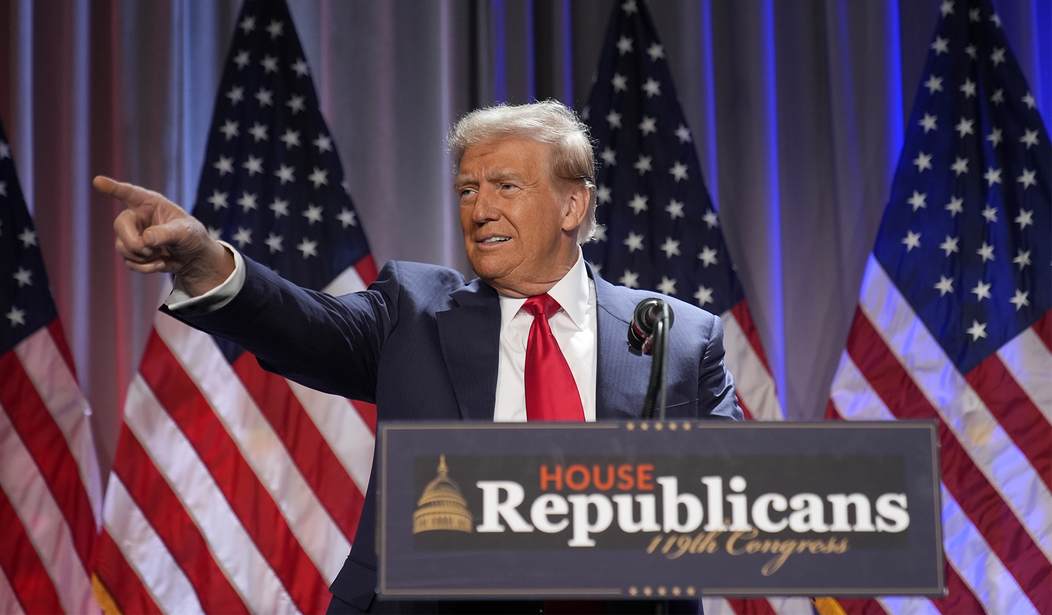As we continue to digest Donald Trump's electoral victory, one question that has popped up within The Discourse is whether or not the incoming 47th president has been handed an electoral "mandate" from voters. I think this is a somewhat silly debate, honestly, because the bottom line is that he won and will wield the resulting power as he sees fit. Some are arguing that his margin is actually relatively slim, historically speaking, so perhaps his mandate is "shallow" or nonexistent. Here is CNN's elections data analyst making that case, which has been shared widely online by Trump detractors:
Trump's mandate? It's very shallow. Trump's now under 50% in the popular vote. His margin ranks 44 of 51 since 1824.
— (((Harry Enten))) (@ForecasterEnten) November 18, 2024
Weak coattails: 4 Dems won for Senate in states Trump won. (It was 0 in 2016 & 2020.)
The GOP is on track for smallest House majority since there were 50 states. pic.twitter.com/FaE80nk4T6
I'll have more to say about the size of Republicans' House and Senate majorities below. In response to Enten, others have shot back that even if his overall margin is inching closer over recent days, the narrative of a resounding win has already congealed over the last few weeks, so straggling vote-counting won't make a dent in perceptions. Maybe slow-counting blue states should get their acts together if they want to avoid such things in the future. I've seen reminders, like this, of the media cheering on Bill Clinton's mandate in 1992, having won just 43 percent of the popular vote:
I remember when Bill Clinton won the 1992 election with a whopping 43% of the vote and Time Magazine and the rest of the regime media said it was a "mandate for change." pic.twitter.com/r9Og5MIJxN
— Jeremy Carl (@realJeremyCarl) November 19, 2024
My view is that Trump swept every battleground state, carried 312 electoral votes -- more than Biden won in 2020 -- and became the first Republican presidential nominee to win the popular vote since George W. Bush, two decades ago. That's a mandate. What Trump does with that mandate will be up to him, and voters will react accordingly. Mandates exist, until they don't. Case in point: Barack Obama clearly won a mandate in 2008, with his sweeping victory, but it didn't last long. He and his party overreached, alienated voters, and got hammered at the polls just two years later. Republicans gained 63 net House seats in 2010. That's an incredible number, considering how few House seats changed partisan control (net) this year. Official seat counts haven't been finalized yet -- which is embarrassing, considering that we are more than two weeks removed from Election Day -- but it's looking like despite a handful of flips on each side, the overall GOP majority will be almost exactly the same size as it was in the previous Congress. As of this writing, House Republicans have won a majority of the national "popular" vote, beating Democrats by millions. These numbers may shift around a bit, but they're more or less baked:
Recommended
With a tiny handful of votes to be counted and races to be certified, House Republicans have won a majority of the national 'popular' vote, outperforming Democrats by ~4.5 million ballots. For reference, 2010, R's won 242 seats (netting 63!) with 51.7% of the national vote. This… pic.twitter.com/LZP0wdLdtS
— Guy Benson (@guypbenson) November 19, 2024
I added, "for reference, 2010, R's won 242 seats...with 51.7% of the national vote. This year, they will barely have a majority, with roughly 50.7% of the total vote. [Democratic] gerrymanders have worked. Not sure if that qualifies as a 'threat to democracy,' or if that term is reserved for things that upset liberals." Harry Enten is right about the tiny House GOP majority, but a lot of that is due to Democrats working the system to minimize Republicans' ability to win seats. As for the ludicrously-early status of Trump's mandate, despite high-decibel media freakouts over Trump's stated governing goals and various executive nominations, the public seems pretty unfazed by it all. Maybe the media is once again learning that relentless, 11-out-of-10 opposition and resistance anesthetizes normal people's internal outrage meters:
NEW POLL: A majority of Americans, including a plurality of independent voters, approve of President Trump's transition performance 🔥 pic.twitter.com/n0EJEfVdR3
— Trump War Room (@TrumpWarRoom) November 19, 2024
Finally, even though Republicans will enjoy a fairly sizable 53-47 upper chamber majority, it's impossible to avoid thinking about the points left on the field, so to speak. If the GOP hadn't underperformed in 2021 and 2022, it's easy to see at least 1-2 seats in the red column coming into this cycle (Georgia and Arizona stand out, as does Pennsylvania, to some extent). The party just netted four seats (MT, OH, PA, WV) but came within less than one percentage point of gaining two more (MI, WI), and roughly two percentage points of snaring another pair (AZ, NV). Democrats should actually breathe something of a sigh of relief that their deficit in the Senate isn't deeper, with Republicans in the mid-to-high 50's right now. Looking ahead, I'll leave you with this:
Trendwatch: “California is on track to lose four congressmen and electoral votes.
— Josh Kraushaar (@JoshKraushaar) November 19, 2024
New York will lose three, Illinois two, while Oregon, Minnesota and Rhode Island are each going to be down one.
Solidly Republican states will get most of the gains” https://t.co/Y82MzaMf8B
Indeed, the electoral college math should already be more red-tinted, with 2020 Census errors benefiting Democrats in 2024. Can this be fixed before 2028?

























Join the conversation as a VIP Member